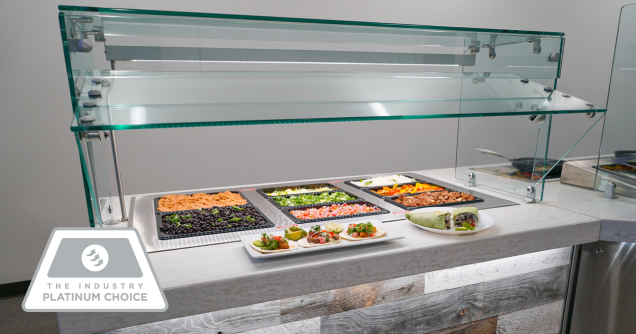
The oldest Millennials are almost 40. As we recently reported, they are no longer the new consumers, and it’s Generation Z that’s capturing the attention of strategists planning for the future.
Yet the spending power of the twenty- and thirty-somethings is gaining more momentum in the markets. The Financial Times reported that Millennial spending power will overtake the older generation by 2020 and continue to rise – and the implications for business can’t be underestimated.
Millennial habits have defined the reality that Gen Z are used to, and the ability to gather huge amounts of information in an instant has now become routine for two generations of customers.
Somi Arian, who founded SmartCookie Media and is a specialist in Millennial consumer behaviour, has produced The Millennial Disruption, a documentary that highlights the impact that it has had on traditional forms of business. So what is it that the Millennial generation expects of the services they use?
Experience over possessions
The business leaders who spoke in Arian’s documentary perpetually question how to engage a Millennial consumer base. They have myriad choices at their fingertips that they can instantly compare, and they’re often unimpressed by product alone. One marketing expert interviewed for the film mused after the screening that since consumers can’t be drawn solely by brand name or product, “We’re all in the entertainment business now.”
“Millennials are definitely more interested in experiences,” Arian explains. “And one reason for that is abundance – the life of this generation is defined by abundance.” It’s a result of being saturated by choice that drives consumers to look for something that seems unique.
Foodservice consultant Chris Stern FCSI, managing director at Stern Consultancy, points out that the typical habits that younger consumers have when they buy food can illustrate a wider trend. “Offering food that’s infinitely tailored is essential,” he notes, summarising the ‘customer-as-king’ philosophy for the digital generation. “It’s important that they feel special.”
Yet businesses and manufacturers still need to take into account the other factors that influence their consumers’ decision-making. Stern acknowledges that this demographic might pay top prices for an ‘experience’, but he firmly points out that “Price is still important when the food is fuel – just less so when it’s a treat.” Millennials will seek to save money in some areas, but are willing to pay for services that suit them in others.
Instant gratification
Millennials, and most consumers used to rapid online feedback, expect services to be incredibly fast but not at exorbitant cost. Stephen Merritt-Harrison FCSI, a consultant with Merritt-Harrison Catering Consultancy, points out, “It’s a major factor for the time-poor, who are willing to pay for convenience. It’ll get to the point that that’s going to be considered the standard.”
Supply chain logistics notwithstanding, it’s likely that suppliers are going to need to hone a juggling act to deliver what consumers want. Alongside looking for convenience, customers also want “quality, ethical consumerism, low cost service, and efficiency,” as Merritt-Harrison outlines. “It’s difficult to deliver all of these, but the consumer pressure is there and many businesses will try to meet those demands.”
This digital proclivity affects Millennial attitudes to food in other ways. Catherine Bournizien FCSI, director of Phinéa Conseil, points to peer-to-peer reviews on social media as a factor in how young people see foodservice. “They are very sensitive to the opinions given by their friends of this or that restaurant,” she notes. “And they have much more confidence in what their network says than in traditional sources like the Michelin Guide.”
Ethical practice
Constant reports of environmental issues across news sites and on social media mean, certainly in Bournizien’s view, that Millennials are far more conscious of the impact of their daily habits.
“I see the emergence of the vegan movement, which is fairly radical in France, as one of the responses to these potentially anxiety-provoking questions,” she says, explaining that anxiety around food might be provoked by the poor carbon footprint of the meat industry, and countered through changes in diet.
Some have taken the decision to eat ‘locovore’ (solely local produce) – and these burgeoning changes will gain momentum, Bournizien notes, through the Internet. “Their capacity to mobilise rapidly, thanks to their social platforms, can amplify boycotts to an unprecedented level,” she points out.
Often the more environmentally friendly option comes at a price, and this can temper a consumer’s ability to buy. “When it comes down to it,” says Stern, “price will trump the environment most of the time.” While wary of putting too much emphasis on one priority, he also recognises the burgeoning interest in supply chain transparency. “As communication continues to race ahead, consumers will want to poke around to see exactly what they’re buying,” he says.
Bournizien agrees: “The entire supply chain, ‘from spade to spoon’ as we say in France, will be subjected to this need for transparency.”
On the other hand, Arian is positive that focus on sustainability is “A shift in society that will continue, and not a brief trend.” For Arian, consumers, and particularly Millennials, “Want to look after the planet – and businesses who do not fit that remit will not survive long.” It’s likely that the demographic following Millennials, the Generation Z that have captured headlines for their sobriety and political activism, will continue to push businesses for ethical accountability.
What now?
The Millennial generation has had marketers, business leaders and foodservice providers alike trying hard to keep up with the demand for service that meets their needs. The next generation is likely to cause another wave of uncertainty in the same boardrooms, as executives and leaders learn to work with, and sell to, a group of people who have never known a non-digital world.
Yet Millennial preferences, particularly their emphasis on sustainable produce, will continue to affect how the foodservice industry develops: through social media, customers can call for change and gather rapid momentum behind their requests. The Internet, and how the younger generation uses it, remains a major factor in the way that Millennials choose to spend their money.
Frances Ball




